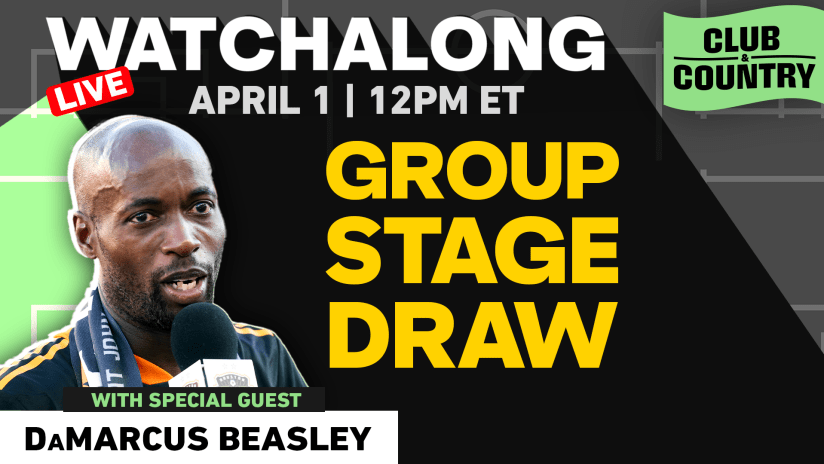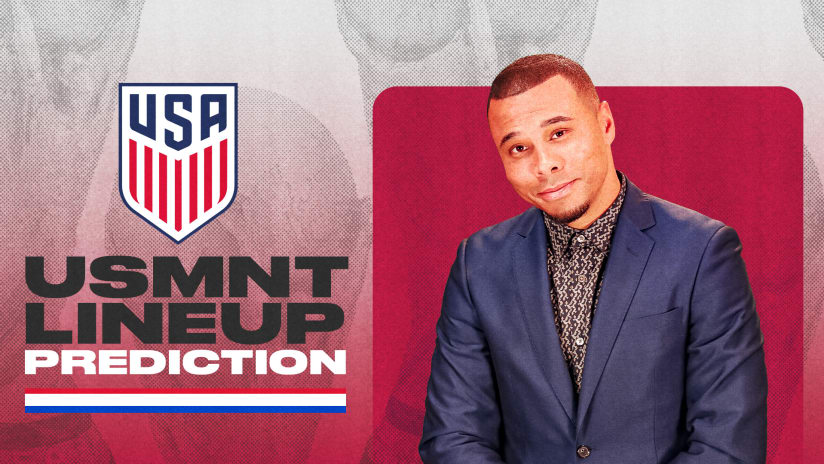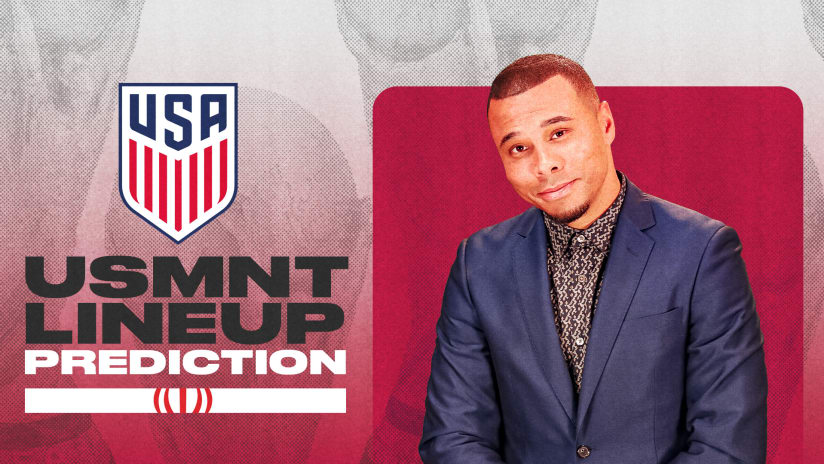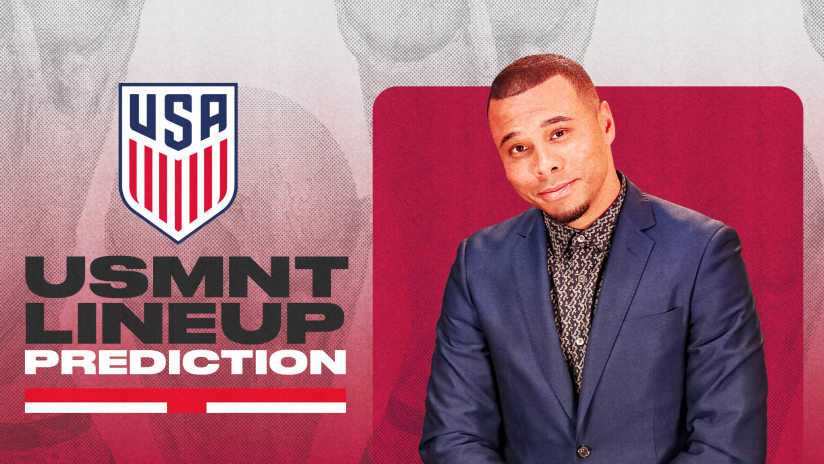When the weight of qualifying for a World Cup is upon you and your team, each player handles the pressure, noise and media differently. There are those who thrive off of it and use it to motivate themselves, those that would rather keep quiet and focus on the task at hand, and those who crumble.
The pressure can be intense and it can come at you from all different angles: The media can pick you apart, the fans can lift you up or cut you down, and there is pressure from your own teammates to perform well. At the same time, you want to make your family proud, and you want to meet and exceed the coaches’ expectations. It’s a lot to take on and as a national team player, you need to learn how to cope and handle the pressure.
This is a dynamic the US men’s national team, amid setting youth-centric records left and right, experienced in spades upon qualifying for the Qatar 2022 World Cup. And it’s a dynamic that I lived first-hand during my own playing career, too.
Memories from World Cup Qualifying
The 2010 World Cup Qualifying campaign was where those feelings were most intense for me. A match I had dreamed of playing finally came in October 2009. With a win, we would be guaranteed a spot in South Africa. That match took place in San Pedro Sula, Honduras, which is known for its hostile environment.
Heading into the game there was a lot of talk about how much pressure we would face if we were to lose. It would mean having to win at home versus a very difficult opponent in Costa Rica. The media had been critical and harsh throughout the World Cup campaign, and many questioned Connor Casey’s selection as a starter up top for that match. We took it personally and went into the game focused on ending that bad press with a top performance.
The pressure was intense and there were other aspects that had to be expected, like the grass being longer than it should, the locker rooms being in poor condition, and the fans being ruthless. We had to prepare ourselves. There was an unspoken pressure to do your job and to do it well.
And so we did. After all the criticism, Connor justified Bob Bradley’s decision to start him with a brace. It was a great game against a good team in a really difficult environment, and we walked away with a 3-2 win and our ticket to South Africa.
My routine
For me, I thrived off the noise and expectations. Ever since I was a little boy, my father had always put the ultimate pressure on me to perform well. Every game. He told me that when I’m older there will be no amount of pressure that I wouldn’t be able to handle. My mentality quickly changed and soon I was the one placing the pressure.
Fast-forward to the night before the Honduras game. I was very intense with my preparation as I was a creature of habit. My routine played a real part in how I managed the stress.
Here’s that routine: I would watch game tape, take a quick cold shower, stretch, put on my lucky Bumpy Pitch t-shirt. Then I would read articles that the journalists would write ahead of the match and digest the many opinions. That would give me all the fuel I needed and I’d close my eyes by 10 pm.
The next morning, I started my day with a big breakfast. I wasn’t a player who liked to eat as we got closer to game time. Music was a big part of my day and it would set the tone. Next, came the pregame meal, where the tension would start to pick up. Everyone wants to know who’s starting and it’s hard to think about anything else.
Soon after we’d have a meeting where the tactics and lineup would be shared with the squad. The players loaded up on the bus and everyone had their own regimen. For the most part, the bus was silent. There were many who liked to put on headphones and not talk. There were a few who liked to talk tactics with each other. For me, I liked to sit in silence, no headphones, and take in the sights and sounds. When we got to the stadium and entered the locker room it was my job to put on music. I felt that by doing this, I would take some of the heaviness out of the room. The positive reaction I’d get from the music was an indicator of relief, a welcomed distraction from the pressure to remind us that this is a sport we love and that this is supposed to be fun. There were also those who liked to sit in their locker with their headphones on, close their eyes and visualize the next 90 minutes. That’s fine too.
Every player prepares for the match in their own way to best prepare themselves. That’s why it’s so important to have different types of leaders in a locker room to manage the various personalities on a team.
Once the whistle blew to kick off the match, all my stress and tension would vanish. It was the sport I’d played all my life, the sport that gave me so much, and that love and joy stifled any nerves I had felt.
Looking forward to Qatar
As we approach another World Cup this year in Qatar, many players will be feeling similarly to how I did at the time. After losing 2-0 in January to Canada there was a lot of pressure put on this group to perform against Honduras. In the frigid temperatures of Minnesota, I saw players rise to the challenge.
Christian Pulisic, in particular, has shown up in the big moments and handled the outside noise really well. To me, he seems like the kind of player who thrives under pressure and uses it to motivate himself. That was abundantly clear after he pulled his “Man in the Mirror” celebration after scoring against Mexico. Doing that in such a key game, another 2-0 result against El Tri in Ohio, against your fiercest rival no less, shows that he is ready to be in the center of the conversation, no matter who is talking.
And then, with everything on the line for the US versus Panama over the weekend, I saw a player who was possessed. He played with a desire that was palpable, led by example and set the tone for the match. That hat trick and captain’s performance in the 5-1 win says it all.
Another player heading into the last round of qualifying who had an enormous amount of pressure on him to perform without getting a yellow card was Tyler Adams. There were many who doubted his ability to control himself in those crucial moments throughout a match where getting a caution could be expected. Yet, head coach Gregg Berhalter and Tyler himself believed he could accomplish two starts without getting that yellow.
He is central to this team’s success and he has shown great maturity in navigating through these games. After this window, this USMNT proved to me that they have the grit, the tenacity and the quality to overcome the immense pressure that comes with playing on the international stage. A young group, in many ways, has grown up before our eyes.














